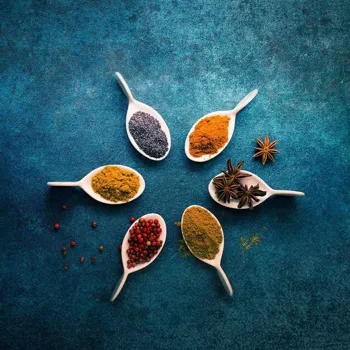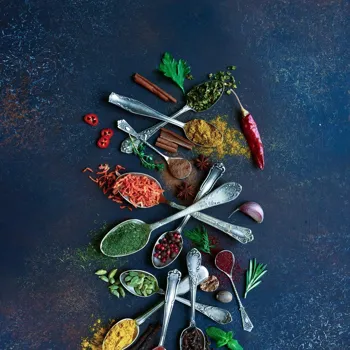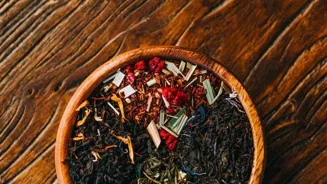Delve into the fascinating world of taste science: uncovering the biology, psychology, and culture shaping our food preferences. Read more to appreciate the intricate symphony of sensations behind your
favorite flavors
We all have our favourite foods, the ones that bring a smile to our face and make our taste buds sing. But have you ever wondered why we like what we like? What makes some people crave spicy samosas while others prefer sweet lassi?
The answer lies in the fascinating science of taste, a complex interplay of biology, psychology, and even culture. Understanding how our sense of taste works can unlock a deeper appreciation for the food we eat and even help us make healthier choices.
It's not just about what tastes good; it's about the intricate mechanisms within us that create the experience of flavour.
Journey into taste science: Tongue's papillae house taste buds for 5 basic tastes
Our journey into the science of taste begins with the tongue. Scattered across the surface of our tongue are thousands of tiny bumps called papillae. These papillae, particularly those shaped like mushrooms (fungiform papillae), house our taste buds.

Each taste bud is a cluster of 50 to 100 specialized receptor cells that detect different taste qualities. These qualities are traditionally categorized into five basic tastes: sweet, sour, salty, bitter, and umami.
Sweetness, often associated with sugars and energy, is detected by receptors that bind to glucose and fructose. Saltiness is triggered by sodium ions, essential for bodily functions. Sourness, indicative of acidity, is detected by hydrogen ions.
Bitterness, often a warning sign of potentially harmful substances, is sensed by a diverse range of compounds. Umami, the savoury taste associated with glutamate, is found in foods like mushrooms and ripe tomatoes, enhancing their richness.
These receptors, along with our sense of smell, work in harmony to create our food experience.
Smell is key to flavor perception, not just taste buds
But taste isn't just about the tongue. Our sense of smell plays a crucial role, contributing up to 80% of what we perceive as flavour. While taste buds identify basic taste qualities, our olfactory receptors in the nose detect a vast array of volatile aroma compounds released from food.

These aroma molecules travel through the nasal passages and bind to olfactory receptors, sending signals to the brain. This is why, when you have a cold and your nose is blocked, food tastes bland and dull.
The brain combines the information from taste receptors on the tongue and olfactory receptors in the nose to create the complex sensation of flavour. So, the next time you bite into a delicious mango, remember that you’re not just tasting it, you’re smelling it too!
Without the integration of smell, we would only be able to detect the five basic tastes.
Individual taste preferences shaped by genetics, environment, and culture
Individual taste preferences are shaped by a variety of factors, including genetics, environment, and experience. Some people are born with more taste buds than others, making them more sensitive to certain tastes.

These individuals, often called "supertasters," may find certain foods, like broccoli or grapefruit, intensely bitter. Our early childhood experiences with food also play a significant role in shaping our preferences.
If we are exposed to a variety of foods during childhood, we are more likely to be open to trying new things as adults. On the other hand, if we are only exposed to a limited range of foods, we may develop a more restricted palate. Culture also profoundly influences our taste preferences.
What is considered a delicacy in one culture may be unappetizing in another.
Our psychological state impacts taste perception profoundly
Furthermore, our psychological state can influence how we perceive taste. When we are stressed or anxious, our taste buds may become less sensitive, making food taste bland. Conversely, when we are relaxed and happy, food may taste even more delicious.
The packaging and presentation of food can also affect our perception of taste. Studies have shown that food served on a white plate may taste sweeter than food served on a black plate.
It's rather interesting to note how our minds interact with the taste experience, beyond what is strictly biological. This relationship highlights the holistic nature of eating and the importance of considering both physical and mental well-being in relation to food choices.
Simple mindfulness during meal times can lead to surprising discoveries.
Researchers use taste science to create healthier foods and treat taste disorders
The science of taste has implications beyond simply understanding our food preferences. Researchers are using this knowledge to develop new foods that are both delicious and nutritious.
For example, they are working on creating fruits and vegetables that are more appealing to children, in an effort to combat childhood obesity. The food industry utilizes understanding of these principles to create products that will appeal to certain audiences.
Furthermore, understanding how taste receptors work can help us develop new treatments for taste disorders, such as ageusia (loss of taste) and dysgeusia (distorted taste). As technology advances, there will be further investigation into the specific nuances of taste.
The science of taste: a blend of biology, psychology, and culture shaping food preferences
In conclusion, the science of taste is a fascinating field that reveals the complex interplay of biology, psychology, and culture in shaping our food preferences.
By understanding how our sense of taste works, we can gain a deeper appreciation for the food we eat, make informed dietary choices, and even develop new ways to improve our health and well-being.
So, the next time you take a bite of your favourite dish, take a moment to appreciate the intricate symphony of sensations that are creating that delicious experience.
It's a reminder that eating involves more than just fuel; it's a multi-sensory journey that deeply connects to our biology, our memories, and our well-being. Continued exploration in this field of science ensures that we continue gaining insights.
AI Generated Content. Glance/InMobi shall have no liability for the content











